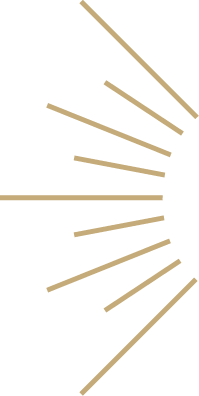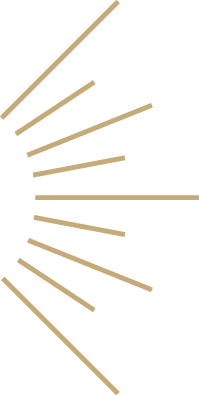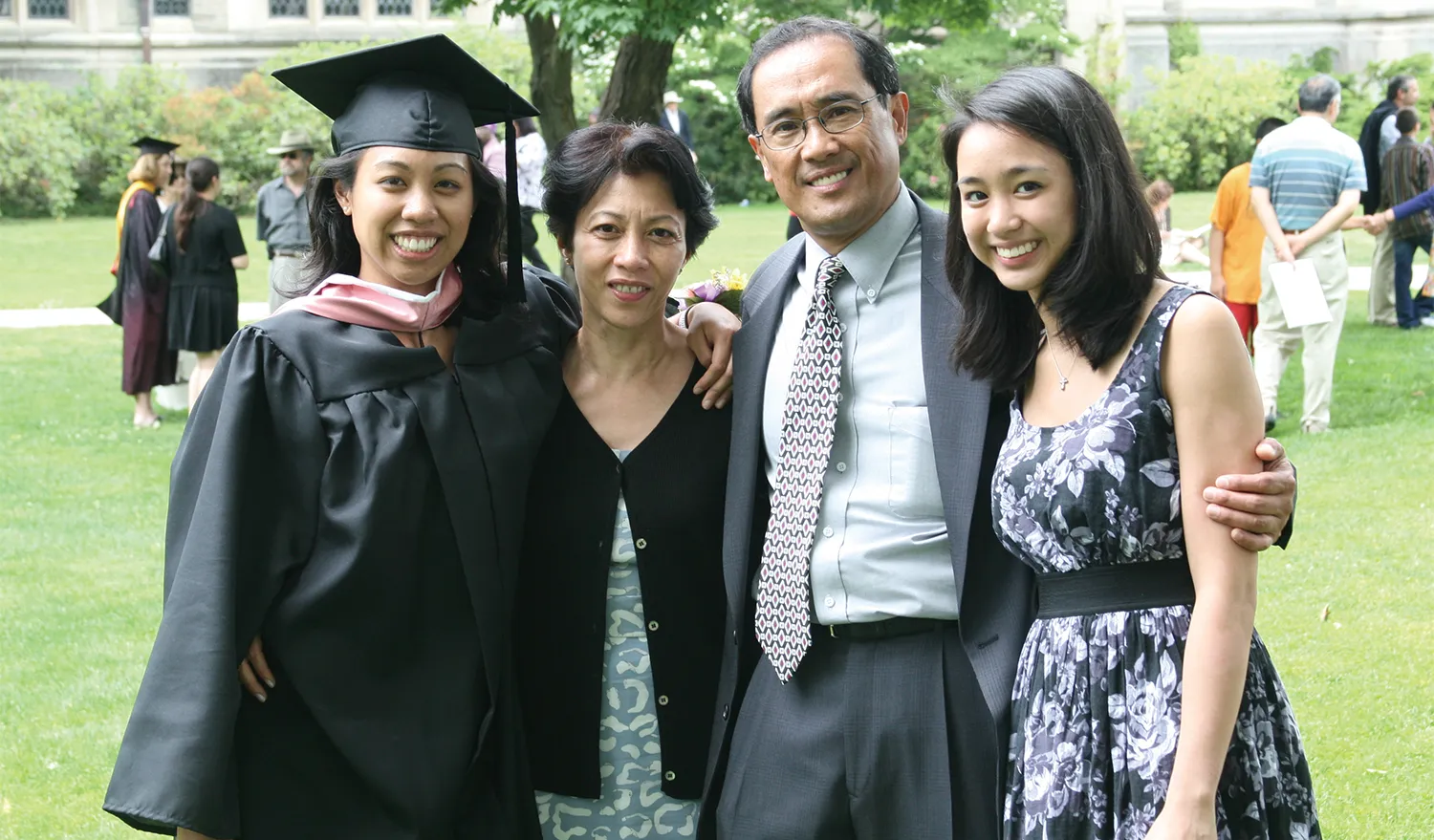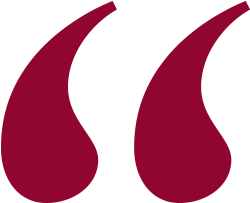

Transformative Support



Today, many alums who have benefited from Vassar’s financial aid program, feeling a strong sense of pride in their alma mater, are compelled to give back to support the College’s current and future students. Their generosity helps give two-thirds of the student population the means to attend the College, bringing diversity, inclusivity, and so much more.


INVITING A NEW GENERATION TO THE VASSAR EXPERIENCE
Now an emergency medicine physician based in Chicago, she’s a consistent donor to the Vassar Fund as well as campus sustainability efforts. She credits Vassar with her development as a person, setting her on the path to a successful career, and for connecting her to lifelong friends.
“For me, financial aid is a way for a wider range of students to get a great education and have, hopefully, as great an experience as I did,” Pabalan said. “It’s a way to make a world-class education possible for people from a diverse array of backgrounds. Being a student is hard nowadays, with all the stresses, struggles, and current events.
“I want to give back to an institution that gave me so much,” she continued. “That’s what really prompted me to give back, so that it can continue to provide such a wonderful education but also help nurture the future in the same way it did for me.”

Stockton Photo Inc
Opening Doors
“Our parents’ savings were essentially wiped out,” Mahapatra said. “If I wanted to pursue higher education abroad, I had to start working in high school and ultimately work towards a scholarship.”
He remembers receiving an email from Vassar’s financial aid office before his acceptance package reached him in Thailand.
“I see this email and immediately think ‘Oh my God, I got the financial aid package. Holy cow, I will go to school in the U.S.—it’s possible!’” Mahapatra recalls. “Vassar absolutely changed my life. Financial aid blows doors wide open. Money is one of those things that, unfortunately, creates a lot of tension in the world. So taking money off the table and looking at somebody just on their merits, it’s something that I feel very strongly about.”
While at Vassar, Mahapatra was very involved on campus, where he received the Student Leader of the Year Award, having served as class president, co-president of the South Asian Students Alliance, Davison House president, a chairperson for the Tsunami Task Force that raised $10,000 toward relief efforts, and a member of the Vassar and Dutchess Community College National Model United Nations team. Now Vice President of GTM Salesforce AI, Mahapatra, previously a member of Vassar’s Board of Trustees, remains heavily involved with the College, as a member of the Nominating Committee, as a mentor in both the Sophomore Career Connections Program and the Vassar Innovation and Entrepreneurship (VIE) Program—and as a consistent donor to financial aid and the Vassar Fund.
“Once I graduated and got a job, I said to myself, ‘As long as I work, as long as I live, I will give back—whether it’s $100 or $1,000 or time, every single month I will give back,’” Mahapatra said. “I think education is the great equalizer. When I think about giving back, I think about what it means to open doors for people and what types of doors they want open. There are a lot of different people with a lot of needs, values, and so on. Giving back to Vassar, for me, means participating and staying engaged and connected. It’s also staying connected with what the future of the world looks like, the future of the workforce. By staying connected with students, I am constantly learning too. And, if I can give people an opportunity to learn from me, that’s a very deep-rooted thing to do.”

Supporting the next generation
“I made a large donation to Vassar focused primarily on financial aid because I think there’s nothing more important than well-informed citizens of the world,” said Blum, who gave $10 million to enhance financial aid in 2022. “I think Vassar is an incredible college that turns out people who want to do great things and make the world a better place.”
Each year, more than $70 million in financial aid is awarded to Vassar students, and gifts from alums, big and small, play a crucial part.
Fitting Right In
Carolyn, the eldest Koehler sister, wanted to be a classically trained archaeologist. She searched all over for a program, eventually finding Vassar, thanks to an alum who was one of her sisters’ godmothers. Knowing very little about the College, she applied, interviewed, and spoke with an alum. After graduating, Carolyn, now retired, became an archaeologist and taught archaeology of the Greek world and ancient Greek for 35 years at the University of Maryland, Baltimore County.
“Something I liked about the Vassar application process is it didn’t matter how much money you had, everybody paid the same amount for housing,” Carolyn said. “That made a difference. It wasn’t a deciding factor, but the sense I got from that alumna and everything was that Vassar was a wonderful place for me.”
Jane was so excited about Vassar after attending Carolyn’s graduation that she applied to the College Early Decision. She worked on campus with a professor of microbiology. She found comradery in Lathrop House, where her entire wing—with the exception of one person—had scholarships.
“We were—and still are—very close,” Jane said. “No one ever looked down on us because we had financial aid at all.”

For Kristin the financial aid process was automatic. On campus, she worked in the library, then did research for history professors. As a graduate student, she received an international MBA at the University of South Carolina, the top-ranked post-graduate international business school in the U.S., according to US News. Kristin, now retired, worked in international marketing and sales before heading her own property management company for 20 years.
Inspired by all they were able to experience and achieve while at Vassar, the sisters recently came together to create the Koehler Sisters Endowed Scholarship Fund.
“We absolutely could not have gone to Vassar without financial aid,” Carolyn said. “It meant everything. It made my career possible. It gave me all those friendships. It opened things up culturally. That’s what we benefited from. Everyone should have that chance.”
“There were any number of things we could donate toward, but it had to be helping people have an experience we had,” Jane added. “It made our lives completely different. The fact I could get a scholarship, go somewhere I had never been, and meet students who, likewise, had scholarships was huge.”
“For me, it really opened the doors to the world,” Kristin said. “To come from little Coleman, WA, to be introduced to the northeast and learn there—that was very different. It served as a launchpad to head on to Europe and my international career. It wouldn’t have been possible if we hadn’t had that scholarship.”
Financial aid helps to bring unique and talented individuals like Pabalan, Mahapatra, and the Koehler sisters to Vassar, providing the opportunity to reach their potential, as it will continue to do for the generations of students to come.